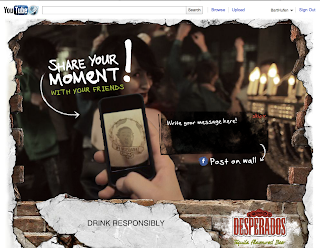>
This article is derived from research by the Dutch governement that was lead by:
Immovator: Freek van ‘t Ooster / Mir Wemuth
TNO: Nathalie van Schie / Erik Huizer
To my tech-savvy audience, most things might be somewhat predictable, but maybe to others they are eye-openers…
The article has been written by ‘my’ 1st time blogger Dionne van der Woord a.k.a. Miss Captain Morgan 😉
We’ve started another year and -like it or not- we’re another year older as well. Lucky for us, wisdom comes with years and so does digital media knowledge. So it’s time to evaluate last year’s trends and view the upcoming ones to prepare ourselves for a successful 2012. Make sure you’re in a comfortable chair cause it’ll be an overload of information.
Users
Let’s start off with some user related information. Digitalization has a huge impact on our private- and work environment; it gives us more and more functions like connecting with friends on social media. Last year, there was a massive uptake of smart phones and tablets. Besides games, especially social media became immensely popular. The increasing usage of social media gives people a voice, which creates leaders and can make consumers so-called ‘prosumers’ (co-producing consumers).
The counter side of increased digital ‘social’ media usage is the fact that people become more individualistic. We are merely broadcasting ‘how wonderful our lives are’ than having a ‘dialogue’. Bart calls this ‘multi-monologues in his book. An example of the increased individuality is being on a family birthday where everyone sits on the couch and is using Whatsapp, Facebook or any other app on his or her mobile phone instead of talking with the people in the same room…
Technology
Media digitalize extremely and new words such as ‘appification’ are introduced. A lot of communication is audio visualized nowadays and tablets, smartphones, second screens and other devices start to integrate with existing media and other areas. Think of education, public relations, advertising, mass communication and personal communication.
Another remarkable trend is the fact that cloud computing is changing media distribution and consumption. E.g. people have become more open towards streaming videos on demand instead of watching their favorite programs/films on TV/(owned) DVD on specific times.
Relatively new is the usage of sensor technology, but it already has an impact on everyday
life and behavior. Sensors can be found everywhere. Think of the game industry (the Wii), the remote control of your TV, a thermometer, an automatic supermarket door, and so on. The search for better quality and improved user experience will continue (think of 3D etc). Therefore, researchers predict new information filters and advanced search & open source techniques.
Business
As said before, media merge is eminent and they’re used in a mixed setting. Audiovisual and written media meet on each other’s domains to target the same devices for their services. This makes it necessary to develop new business models for the digital world and face the difference in thinking towards classic models such as authenticity, copyrights and originality.
Accountability has – and will get – a more important function. Companies now follow a human centered approach to service development. This can be seen in co-creation, mobilizing crowds, crowd sourcing, and direct influence of individuals on design of products, environment and services mostly through social media like blogs, Facebook, Twitter and YouTube.
Last, but not least, there’s a fundamental change in the role of producer and consumer of information; the former passive consumer is now an active producer. The result is that professionals are now looking for a new useful role in the information and influence chain (sales funnel).
Data
The massive usage of data (storage) causes a desperate need for metadata and smart search & retrieval. The trend is to share information with our circle of friends, so existing data (text, pictures, video’s) multiplies a few times due to sharing with connections. We saw this a few years ago for the first time on the Wikileaks case, and researchers are still busy developing the possibilities.
Unlucky for a lot of new media applications, there’s the question of digital preservation. Are those applications here to stay, and are they built for long-term usage? E.g. Facebook is replacing My Space, and Google+ could become a huge competitor of Facebook (although I doubt that for now). But what do you think will be the next big digital hype…?
Let us know!
Posted in Digital |
No Comments »










